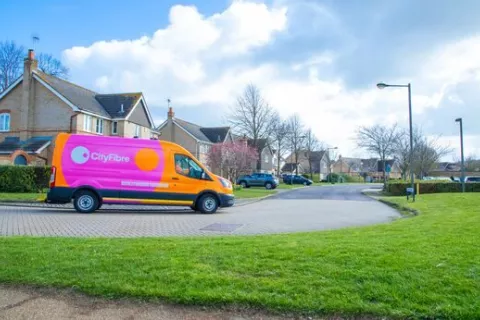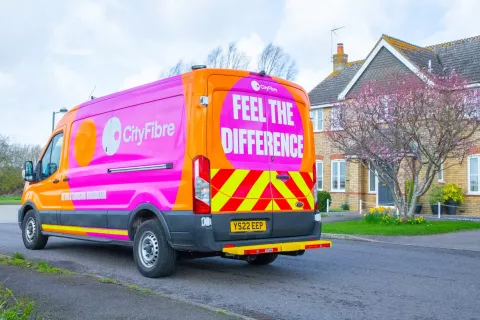We recently discussed the criticism Facebook founder Mark Zuckerberg was facing with his new Internet.org initiative which aims to enable the world’s poorest people to access the Internet for free by charging the content providers for the end users’ access. Whilst seemingly a noble idea, it is receiving increasing disapproval for its obvious contradiction with net neutrality and now further concerns have been raised about security and privacy.
As we said in our last article, in principle, the idea of providing free Internet access to some of the world’s poorest people is admirable but, as Mr Zuckerberg has admitted himself, delivering free access to the whole Internet simply isn’t possible:
"It costs tens of billions of dollars every year to run the Internet, and no operator could afford this if everything were free, But it is sustainable to build free basic services that are simpler, use less data and work on all low-end phones."
The problem is, by only providing access to certain sites that are signed up to the project and fit strict criteria there is a significant contradiction with net neutrality, a fundamental principle of the Internet that is widely acknowledged as something that needs to be adhered to and protected. Read our previous article
‘Can Internet.org coexist with net neutrality?’ to find out more about our views on this.
Facebook’s latest response to the ongoing criticism regarding net neutrality is as follows:
"We are convinced that as more and more people gain access to the internet, they will see the benefits and want to use even more services. We believe this so strongly that we have worked with operators to offer basic services to people at no charge, convinced that new users will quickly want to move beyond basic services and pay for more diverse, valuable services."
This doesn’t really eradicate the problem of net neutrality though. If access to some content remains free and other content has to be paid for the principle is still being jeopardised. A two tier Internet is essentially still being created!
It’s not just about net neutrality though!
However, it’s not just the net neutrality aspect that is now causing concern. Amongst the strict criteria for companies wanting to join Internet.org is the fact that encryption is not allowed. The reasoning behind this is reportedly because all the on-the-house web traffic has to go through Internet.org’s proxy servers which cannot (currently, at least) support HTTPS. Therefore, participating sites using HTTPS will either have all encryption stripped out or will be rejected from the project.
One of the project's main critics, SaveTheInternet.in stated:
"Because of the competitive aspect of Internet.org, if my competitor is on it, I will feel compelled to be on it as well…And all of this data will be available to Facebook and - because of the lack of HTTPS - that data can also be sniffed by telecom operators and by governments.”
In response, Facebook has confirmed that it will have access to track users’ online activity but argued that use of that information will be governed by their standard data policies, which seems of little comfort to many privacy advocates. Let’s face it, Facebook doesn’t have the best reputation for protecting users’ privacy and has been accused of tracking online activity in the past.
The growing criticism of the project has led to several of India’s major online companies withdrawing from the project and may be a key reason why Zuckerberg has hinted that support for encryption may be something they are now working on and will potentially be added to the project. Without encryption support we think its days may well be numbered!
However, The Electronic Frontier Foundation (EFF) raises another valid and concerning point: “Even if Facebook were able to figure out a way to support HTTPS proxying on feature phones, its position as Internet gatekeepers remains more broadly troublesome. By setting themselves up as gatekeepers for free access to (portions of) the global Internet, Facebook and its partners have issued an open invitation for governments and special interest groups to lobby, cajole or threaten them to withhold particular content from their service. In other words, Internet.org would be much easier to censor than a true global Internet.”
Considering the political climate of some of the countries that Internet.org is predominantly involved in, this could be of key concern. The project could potentially be used for censorship or even propaganda in the worst case scenarios, at the very least it could be used anti-competitively and intrude on users’ privacy rights. Whilst his intentions are good, we feel Mr Zuckerberg may have bitten off more than he can chew with this one and for the moment at least, he’s not quite got it right!
Have your say!
Do you share the concerns raised over the Internet.org project? Do you think this could be the first step towards the demise of net neutrality? Do you concerns centre more around the potential security and privacy threats? Or do you think the project should be commended for what it is trying to achieve rather than criticised? Let us know your thoughts by leaving us a comment below.
Related articles
Further information
[cookiecontrol1]
[subscribe2]

 Neil Watson, Head of Service[/caption]
Neil Watson, Head of Service[/caption]


